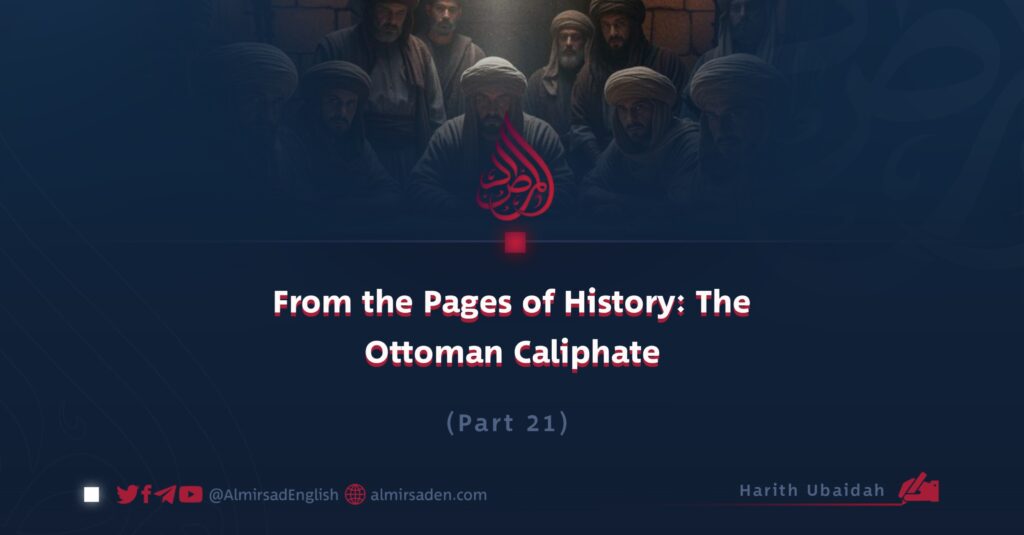Part 21
Harith Ubaidah
The Trials and Triumphs of the Ottoman State
The divine law of trial applies to all nations, groups, civilizations, and societies. The Ottoman Empire was no exception to this universal principle. Despite internal divisions and mounting challenges, the Ottomans remained resilient, particularly during the events surrounding the Battle of Ankara. In 1413 CE, during the period of civil strife known as the Ottoman Interregnum, a rival claimant temporarily seized power before Muhammad I ultimately reasserted control. Over time, however, many of the vast territories once held by the Ottoman Empire had slipped from its grasp.
Yet the attempt to dismantle the Ottoman state in the aftermath of Ankara ultimately failed. This was largely due to the divine methodology upon which the empire had been established. Allah had elevated the Ottomans above many other Muslim nations because of their firm faith, sound creed, noble character, and unwavering commitment to striving in His cause. This spiritual and moral resilience endured through the most difficult periods. Early Ottoman leaders such as Orhan and his brother Alauddin governed with remarkable capability. Their strength was evident in the justice of their legal system, their commitment to educating the youth, and their broader contributions to Islamic civilization.
It was not long after the disaster of Ankara that the shattered ruins of the past were rebuilt. The Ottomans regained their strength, and the vitality of Shariah-based governance once again infused the empire. Through determination and resolve, they reasserted their authority. Both allies and enemies were left astonished by the speed and strength of their recovery.
Sultan Muhammad I: Rebuilding the Empire
Sultan Muhammad I was born in 781 AH (1379 CE). He rose to power following the death of his father, Sultan Bayezid, and is remembered in history as Mehmed Çelebi. He was of medium height, with a round face, thin eyebrows, a fair complexion, and a strong, broad-shouldered physique. Allah had endowed him with exceptional bravery and resilience. An accomplished wrestler, he took part in 24 battles throughout his reign and sustained more than 40 wounds.
Endowed with prudence, intelligence, and administrative skill, Sultan Muhammad successfully brought the civil war to an end and steadily expanded his victories. He rebuilt the capital upon new foundations and devoted his long reign to strengthening the state’s core institutions. For these reasons, many historians regard him as the second founder of the Ottoman state.
What distinguished Sultan Muhammad from other rulers was his remarkable patience, gentleness, and forbearance. Even when individuals violated the law or rebelled against the empire, he often responded with restraint. One notable example was the leader of Karaman, who declared independence. When captured and brought before the Sultan, he was made to swear an oath on the Qur’an and was forgiven. When the same leader later violated his oath and rebelled again, he was once again captured and once again pardoned. Sultan Muhammad’s objective was to lay a firm and lasting foundation for the newly restored empire.
To reduce internal unrest, he often employed diplomatic solutions. After suffering a defeat at the Battle of Kelebolu, he ceded certain coastal areas along the Black Sea and nearby cities close to the Byzantine city of Thessaloniki to the ruler of Constantinople in exchange for peace. He also quelled revolts in Europe and successfully reincorporated several Anatolian emirates that had previously been swayed by Tamerlane.
These regions once again became part of the Ottoman realm. During Sultan Muhammad’s reign, a controversial figure named Bedreddin rose to prominence. Although he presented himself as a Muslim scholar, Bedreddin’s role later proved divisive. He aligned himself with the Sultan’s brother, Musa Çelebi, and was appointed to the esteemed position of Qadi al-Askari, or Military Judge. Musa considered him a trusted advisor, and Bedreddin quickly became an influential figure in matters of theology and belief.
The author of Al-Shaqā’iq al-Nu‘māniyya writes that Shaykh Bedreddin Mahmoud ibn Isra’il, popularly known as Ibn al-Simawna, was born in the Simawna fortress near the city of Edirne, in present-day European Turkey. His father served as both a judge and a military commander, and he had personally conquered the fortress. Bedreddin was born during the reign of Sultan Ghazi Hüdavendigâr, also known as Murad I. In his youth, he learned arithmetic from his father, memorized the Qur’an, and studied the foundational Islamic sciences under the renowned scholar Mawlana Shahidi.
